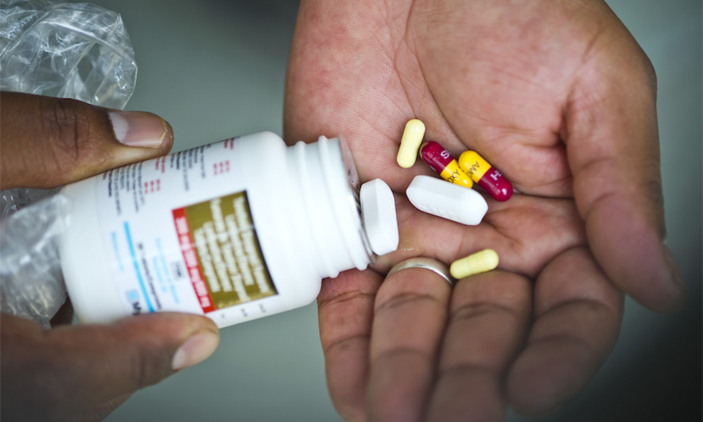The Ministry of Health has come out to dismiss reports that there is a shortage of drug stocks of the antiretrovirals (ARVs) for the HIV patients in Uganda.
In a statement released on Tuesday, the Acting Director General of Health Services in the Ministry of Health, Dr. Henry Mwebesa clarified that the ARV drugs are currently in adequate supply.
“Ministry of Health would like to inform the public that contrary to the information that has been making rounds in the press and some fora, the country has adequate stocks of ARV drugs to manage all the patients on treatment in Uganda,” the statement read in part.
The Ministry says that it operates a dual track supply chain for the drugs which involves both public and private sector suppliers.
On the part of the public sector, ARVs are distributed by National Medical Stores (NMS) to all public health facilities.
The private sector is represented by the Private Not for Profit (PNFP), and Private for Profit (PFP) health facilities with supply from both the Joint Medical Store (JMS) and Medical Access Uganda Limited (MAUL).
ARVs supplied to the public facilities are primarily funded by the government of Uganda together with the Global Fund to Fight AIDS, Tuberculosis (TB) and Malaria. Funding for the private players comes from the U.S government through the President’s Emergency Plan for AIDS Relief (PEPFAR) program.
“Over two-thirds of HIV patients in Uganda are supplied through the public sector supply chain through the National Medical Stores,” the Ministry has said.
According to government, the U.S government through PEPFAR has in the last 2 years provided some resources to bridge gaps in the public sector ARV supplies.
Government however admits that during the month of September, the quantity of second line and some pediatric ARV formulations for the public sector, fell below the acceptable buffer stock of 4 months.
This was due to delays in the delivery of some of the ARV orders.
“As a result of this, we had to rationalize drug usage in the health facilities. This meant that instead of prescribing the normal two months of drug refills, health workers reduced the refill period to one month,” Dr. Mwebesa clarified.
But the Ministry of Health says that the pending deliveries of the affected second line and pediatric ARV formulations for the public sector have now arrived in the country.
“NMS is in the process of distributing these commodities with prioritization of the districts and health facilities that the most affected by the rationalization”.
In the case of the first line formulations, government maintains that stock levels in the public health facilities have been and remain normal and stable. In private facilities, both firstline and second line commodities are normal and stable.
The Ministry also refuted claims that government diverted funds meant for the procurement of ARVs to pay for other commodities that are not ARVs.
On the contrary, government says that “any additional funds such as from the programming of other activities are allocated to procurement of ARVs”.
According to government,USD 19 million was reprogrammed to procure ARVs to bridge the public sector gap in the current Global Fund grant.
“Stakeholders and patients countrywide should be reassured that there are the right quantities of ARV drug formulations for patients to continue their treatment without any interruptions.”
The public has been urged to report stock outs of some ARVs found in health facilities through 0800-100-066.
About 1.6 million people are living with HIV in Uganda and of these, an estimated one million were on ARVs treatment by June this year, according to the Uganda AIDS Commission.








